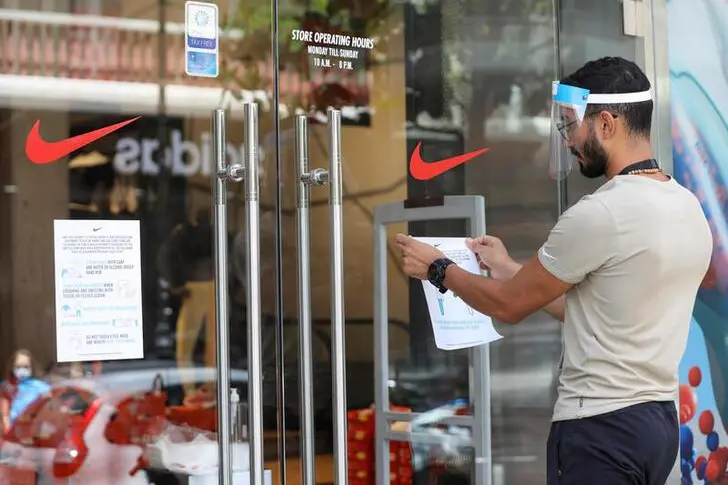PHOTO
BEIRUT: Head of Rafik Hariri University Hospital Firass Abiad Friday said that Lebanons coronavirus situation was very worrisome, as the largest weekly increase in coronavirus cases is expected by the end of the week.
How should we describe the current #COVID19 situation in [Lebanon]? Two words, very worrisome, Abiad said.
In a series of tweets, Abiad estimated that over 200 cases could be registered by the end of the week, less than two weeks after Lebanons international airport reopened. He warned that Lebanon might be heading into a storm."
The airport did not open as planned, Abiad said. A preflight [positive] PCR limited the inflight of [positive] cases, but does not apply to all flights. Digital apps to follow up on arrivals have not worked well, he tweeted.
Just last week, Abiad in an interview with The Daily Star defended the new public health policy that no longer enforces a two-week quarantine period for passengers flying from countries with trusted PCR tests, which make up 80 percent of incoming flights.
But as the virus has a 14-day incubation period, a negative PCR test is no guarantee that a positive result wont emerge at a later date
Abiad had explained that the new policy meant, some people might slip through the cracks, but said that in every strategy you use there is a tradeoff.
Within this strategy we wont catch all cases but well try to catch most, and allow people who want to come in for quick visits to leave their homes, Abiad said.
But in Fridays tweets, Abiad said that rise in numbers is due to both local spread and influx of imported cases.
There is a rise in the number and size of clusters, and in the distribution as the Microbe spreads to various locations (1st case in Hasbia), including densely populated areas (Ghbayri) and camps, he tweeted.
The head of RHUH pointed to lockdown fatigue, and the publics lack of adherence to social distancing measures as a cause of local spread, despite restaurants, cafes and nightclubs being permitted to reopen over the last month.
He called on authorities to better enforce safety measures and hold businesses and individuals accountable, including taking legal action or maybe closing businesses.
Abiad also cautioned that Lebanese hospitals were struggling due to delayed payments and a lack of resources.
Delayed payments, mounting costs, dwindling supplies and power shortages all pose serious challenges. 4 hospitals reported infections in healthcare staff in the last few days. All this offsets the preparedness achieved over the past months, Abiad tweeted.
Abiads comments come after Lebanon confirmed 66 new coronavirus cases Thursday, the highest single-day jump since the virus was detected over four months ago. Forty-four cases were detected among the local population and 22 among travelers from abroad.
Lebanons only international airport reopened July 1 and is expected to daily bring in 2,000 travelers who officials hope will buoy the countrys economy as it passes through the worst financial crisis in Lebanons history.
Copyright 2020, The Daily Star. All rights reserved. Provided by SyndiGate Media Inc. (Syndigate.info).





















